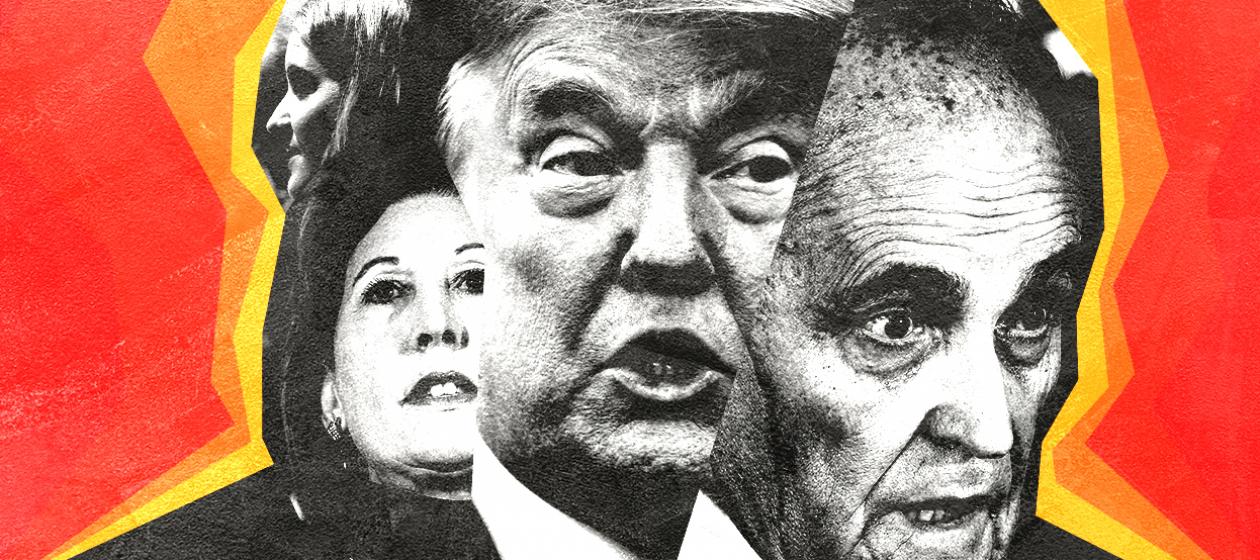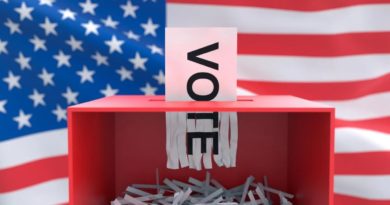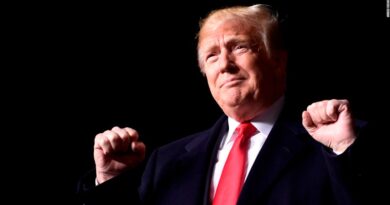Would Republicans believe election conspiracy theories without Trump?

How have we gotten to this point — with the just-defeated president claiming without any verifiable evidence that the election has been stolen from him in an unprecedented act of voter fraud and a solid majority of his party’s voters inclined to believe the conspiracy?
Most pundits have placed the blame squarely on Donald Trump himself, the man who made a point of spreading distrust in the electoral system months before the counting began and who clearly stated in the weeks leading up to the vote that he would not accept any outcome other than his own victory.
Yet in a lengthy, insightful column published over the weekend, The New York Times‘ Ross Douthat suggested an alternative explanation. Instead of blaming Trump and other prominent Republicans for encouraging voters to believe the election was stolen, Douthat suggests that we need to understand the spread of election-related conspiracies over the past month as being “about demand as much as supply.” By this he means that many people are going in search of evidence to substantiate beliefs they for the most part already hold rather than allowing themselves to be corralled into those beliefs by dishonest, intentionally bad actors.
The problem, in other words, isn’t mainly the influence of Trump, the conspiracy-addled right-wing media ecosystem, and complicit members of the Republican Party. It’s a broader, pre-existing tendency of people in general (and conservatives in particular) to be persuaded by the kinds of things these people are saying.
Douthat’s column is characteristically thoughtful and well worth reading and pondering. It’s also a useful corrective to those on the center-left and the Never Trump center-right who reflexively blame the president for everything they don’t like about what the GOP has become in recent years — in many cases because they fervently want to believe that after Trump is taken down, the Republican Party will be freed up to revert back to the way it was when George W. Bush, John McCain, and Mitt Romney were its standard bearers. If Douthat’s emphasis on the demand side of the equation inspires some deeper thinking on the part of these Trump critics about the challenge of responding to troubling trends on the right, it will have done more good than most opinion columns.
Yet Douthat’s focus on what conservative voters want to believe goes too far, relieving the president and other members of his party of responsibility for actively cultivating and encouraging illiberal and anti-democratic habits of thinking in the Republican electorate.
The primary reason Republican voters are inclined to believe conspiracies about a stolen election is that Trump primed them to believe it by talking for months about how untrustworthy elections (and especially mail-in ballots) are — and because lots of Trump’s most loyal allies in the party and a series of partisan pollsters acted as if the president was heading toward easy re-election when he was actually 8-10 points behind. Those mainstream, professional polls ended up being off by 4-5 points. But they weren’t off by twice that much or more, which is what they would have needed to be to vindicate the hopes and expectations that many Republican officials and pundits actively encouraged.
And then, of course, there was Trump’s own reaction to the outcome of the vote, beginning with his temper tantrum at 2:30 a.m. on election night, along with countless public remarks, speeches, and tweets over the past month aggressively denying that he lost and alleging that the election was stolen from him. If Trump had behaved like any previous president in the modern era — allowing the counting to continue until it was complete and then conceding the race once the crucial states were called on Saturday, Nov. 7 — millions of Republican voters who now affirm conspiracies of voter fraud would likely have taken a very different view, placing far less faith in sinister plots.
Instead, the president, along with his lawyers, media cheerleaders, and allies in Congress have thoroughly polluted the public square with lies and ill-founded insinuations of wrongdoing. And the overabundant supply of epistemic toxins has had a powerful effect.
This should surprise no one.
Before John McCain picked Sarah Palin as his running-mate, Republicans weren’t sitting around in early 2008 pining for a sassy, trash-talking demagogue. But once they saw her and listened to her speak, they loved it and wanted more.
Likewise with the “birtherism” that Trump used to launch his political career. Republican voters weren’t looking for corroboration that Barack Obama was born in another country and so was literally an illegitimate president. They were unhappy with his presidency and fastened onto a ready-made conspiracy to explain their distaste once it was offered to them.
This doesn’t mean that everything that happens on the right is driven by politicians supplying the voters with bad ideas. But it does mean that supply and demand usually inform one another in complicated ways — and that supply often shapes demand and can even drive it.
American conservatives of an economically libertarian stripe sometimes resist this fact, preferring instead to treat consumer demand as given, and business as simply (and innocently) responding to it. But as the opioid crisis shows very vividly, making a certain kind of product (powerful and addictive painkillers) easily and cheaply available can have a huge influence on shaping the preferences of consumers, sometimes even in self-destructive ways. The history of capitalism is in part a dynamic story of the way a steadily increasing supply of new products — cars, refrigerators, iPhones — has helped to conjure new “needs,” and therefore new demands, in a marketplace where they didn’t previously exist.
That’s also a good part of what’s happened in the Republican Party over the past few decades. A conglomeration of mainstream politicians, pundits, publishers, radio talk-show hosts, cable news networks and on-air personalities, websites, podcasters, and populist rabblerousers have worked to shape the assumptions and preferences of the Republican electorate. As a result, a large segment of it is now ready and eager to believe the incoming president of the United States stole the election from his opponent outright — and that the refusal of Democrats, the mainstream media, and even many Republican elected and appointed officials to intervene to reverse this rank injustice is evidence that the entire system is corrupt.
That shouldn’t be taken as evidence of a separate conspiracy — one in which Republican elites conspire to turn the party’s voters into easily manipulated rubes for the sake of political gain. Once again, supply and demand, sellers and buyers, influence and inform one another in a feedback loop. If election-fraud conspiracy theories have widely caught on among conservatives, that’s probably in part because those conservatives were already in some respects predisposed to believe them, just as Ross Douthat claims.
But this predisposition isn’t just something given, rooted in the innate penchant of the human mind to doubt the once-authoritative institutions of American democracy and to latch onto hyperrational, comprehensive explanations of complex phenomena without adequate evidence. Both of those tendencies need to be actively encouraged before they will be widely embraced — and for some time now, Republicans have been doing their best to make it happen.
*** This article has been archived for your research. The original version from The Week can be found here ***


